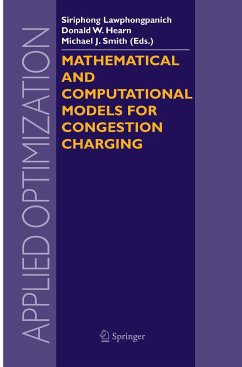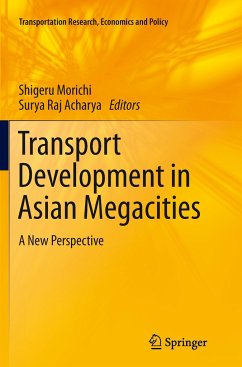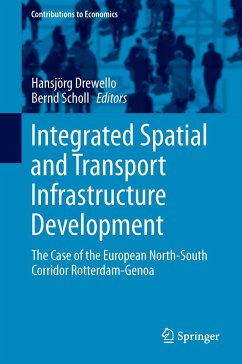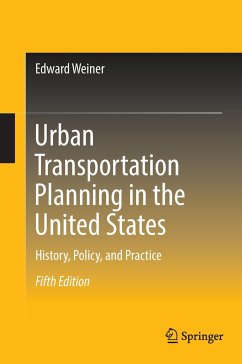
Mathematical and Computational Models for Congestion Charging
Versandkostenfrei!
Versandfertig in 6-10 Tagen
76,99 €
inkl. MwSt.

PAYBACK Punkte
38 °P sammeln!
Although transportation economists have advocated the tolling of urban streets as a mechanism for controlling congestion and managing travel demands for over 50 years, it is only recently that this idea has become practical. When compared to the alternative of building more roads, congestion pricing - in particular via electronic tolling - is attractive and has been adopted in countries around the world. Recent implementations in London, Singapore, and various cities in Norway, as well as a number of projects in the United States, have been judged successful.This book presents rigorous treatme...
Although transportation economists have advocated the tolling of urban streets as a mechanism for controlling congestion and managing travel demands for over 50 years, it is only recently that this idea has become practical. When compared to the alternative of building more roads, congestion pricing - in particular via electronic tolling - is attractive and has been adopted in countries around the world. Recent implementations in London, Singapore, and various cities in Norway, as well as a number of projects in the United States, have been judged successful.
This book presents rigorous treatments of issues related to congestion pricing. The chapters describe recent advances in areas such as mathematical and computational models for predicting traffic congestion, determining when, where, and how much to levy tolls, and analyzing the impact of tolls on transporation systems. The analyses and methodologies developed in this book provide:
- Mechanisms that aid in determining and comparing congestion pricing schemes
- Methodologies for evaluating the efficiency of existing and proposed congestion pricing schemes
- A means to predict the impact of pricing on urban transporation systems
- Information essential to the financial and political success of congestion pricing programs.
This book presents rigorous treatments of issues related to congestion pricing. The chapters describe recent advances in areas such as mathematical and computational models for predicting traffic congestion, determining when, where, and how much to levy tolls, and analyzing the impact of tolls on transporation systems. The analyses and methodologies developed in this book provide:
- Mechanisms that aid in determining and comparing congestion pricing schemes
- Methodologies for evaluating the efficiency of existing and proposed congestion pricing schemes
- A means to predict the impact of pricing on urban transporation systems
- Information essential to the financial and political success of congestion pricing programs.














